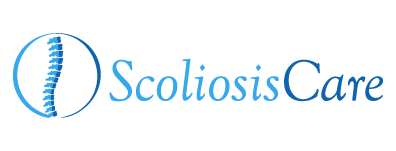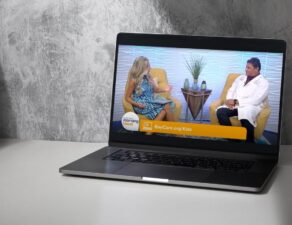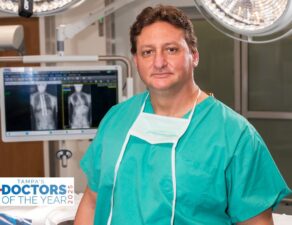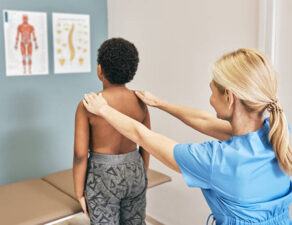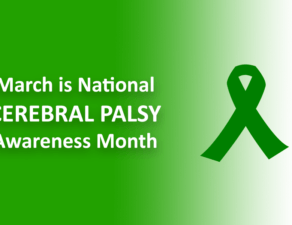
TAMPA, Fla. – As National Scoliosis Awareness Month begins, Dr. David Siambanes, the founder of Scoliosis Care and director of the St. Joseph’s Children’s Hospital Scoliosis Center in Tampa, is encouraging children and adults to be aware of signs and symptoms of scoliosis and undergo scoliosis screenings throughout the month of June.
According to the American Association of Neurological Surgeons, scoliosis affects an estimated six to nine million people in the United States and is the most common spinal deformity.
Signs of scoliosis usually become evident between the ages of 10 and 15, although having scoliosis as an infant or developing scoliosis as an adult is a possibility. According to Dr. Siambanes, diagnosing scoliosis early on provides the most effective options for treatment.
“Many students are given a scoliosis screening, also known as the Adam’s Forward Bend Test, sometime around the fifth or sixth grade and typically only once,” said Dr. Siambanes. “Because these tests are not routine, I would advise parents to speak with their primary care physician to make scoliosis screenings a part of a young adult’s annual physical exam.”
Although scoliosis is more prevalent in young adults, it is possible to require scoliosis treatment as an adult. According to the Scoliosis Research Society, adults with idiopathic scoliosis have more symptoms than teens because of degeneration in discs and joints.
According to the Scoliosis Research Society, the signs of scoliosis can include:
• One shoulder may be higher than the other.
• One scapula (shoulder blade) may be higher or more prominent than the other.
• With the arms hanging loosely at the side, there may be more space between the arm and the body on one side.
• One hip may appear to be higher or more prominent than the other.
• The head may not be exactly centered over the pelvis.
• When the patient is examined from the rear and asked to bend forward until the spine is horizontal, one side of the back may appear higher than the other.
Dr. David Siambanes is a board-certified orthopedic surgeon and an expert in both operative and non-operative treatment of all forms of spinal deformities. In his current role at Scoliosis Center, Siambanes focuses on providing treatment for both pediatric and early adult spinal deformities.
